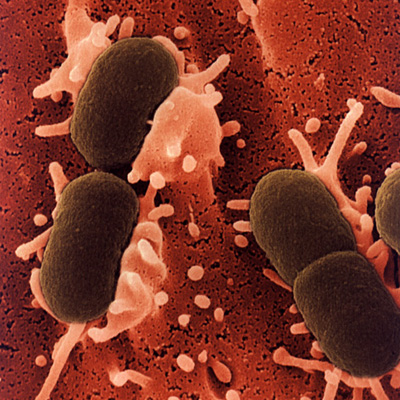Bacteria in the intestine affect your behavior
 Bacteria in the intestine affect your behavior - Thousands of live bacteria in the human intestine. In addition to providing benefits, the presence of bacteria, sometimes also harm humans. A recent study revealed that bacteria in the gut can influence human behavior. According to research done by researchers from McMaster University, the bacteria in the gut can affect the chemicals in the brain and affect human behavior. This finding is very important, because this type of stomach diseases, including irritable bowel, often associated with anxiety or depression.
Bacteria in the intestine affect your behavior - Thousands of live bacteria in the human intestine. In addition to providing benefits, the presence of bacteria, sometimes also harm humans. A recent study revealed that bacteria in the gut can influence human behavior. According to research done by researchers from McMaster University, the bacteria in the gut can affect the chemicals in the brain and affect human behavior. This finding is very important, because this type of stomach diseases, including irritable bowel, often associated with anxiety or depression.In addition, there is also speculation that say psychological problems, such as symptoms of autism, is associated with the bacteria contained in the gut. "The results are amazing provide impetus for further penelitihan against disease-causing microbes component behavior," said professor of medicine and researcher of Michael G. DeGroote School of Medicine, Stephen Collins as reported medindia.net, Friday, May 20, 2011. Collin and his assistant, Premysl Bercik doing research at the Institute of Farncombe Family Digestive Health Research (UK). In the study, found that in the intestine of each person there are approximately 1,000 trillium bacteria that live in comfort, and harmony with human life. These bacteria perform several functions essential to health, which absorb energy from food, to protect the occurrence of infections, and provide nutrients for the cells in the intestine.
However, if 'good life' bacteria were susceptible to interference, likely to impact the human condition. Any disruption can be life-threatening conditions, such as infectious colitis due to antibiotics. To prove the bacteria can affect behavior, researchers took a bacteria-free mice, then gave the bacteria from mice that have aggressive behavior. The result, after rats were given bacteria that behave aggressively, and bacteria-free mice were originally quiet became more aggressive and daring. The same study also showed that the original mice become passive aggressive when given the bacteria from mice that behave passively. Meanwhile, previous studies focused on the role of bacteria in the early development of the brain. Collin said recent research indicates though many factors that determine behavior, the nature and stability of bacteria in the gut can influence behavior and any disruption. Both disorders caused by antibiotics or infection, may cause changes in behavior.



Comments
Post a Comment